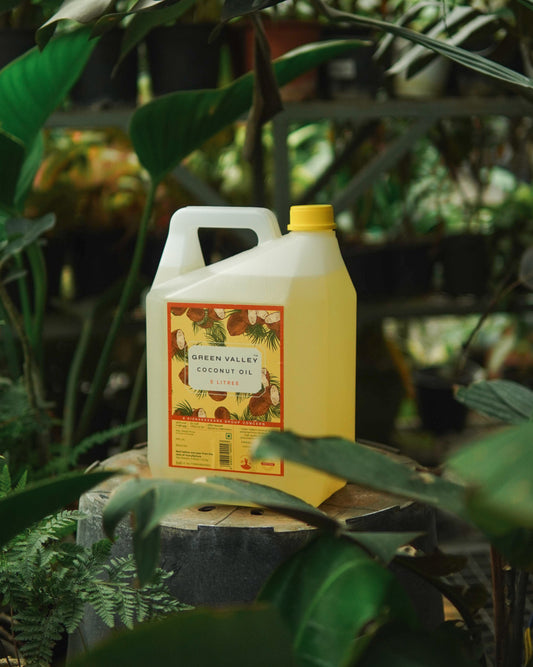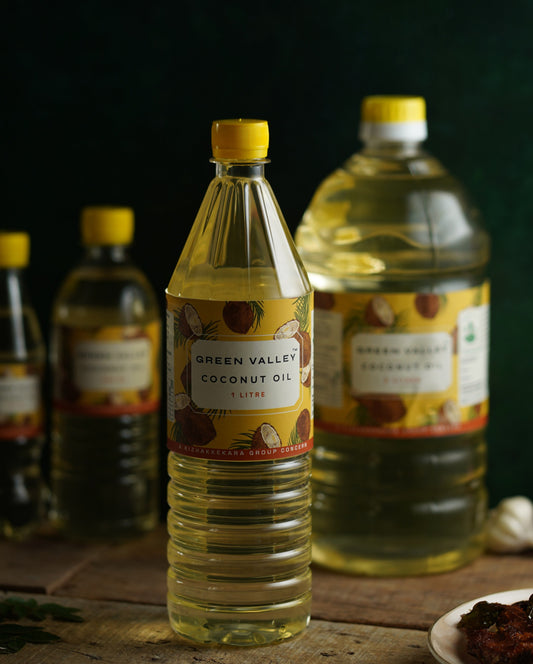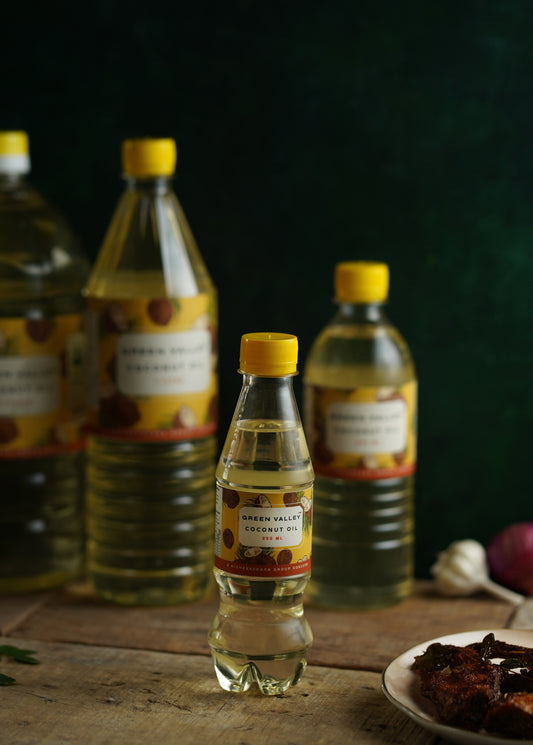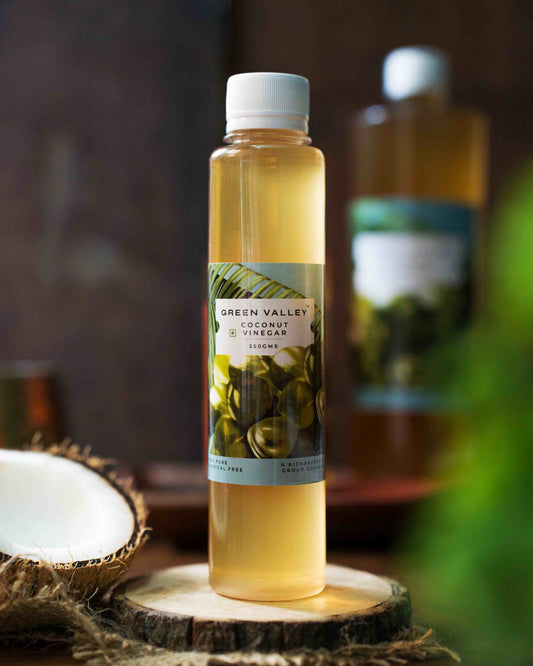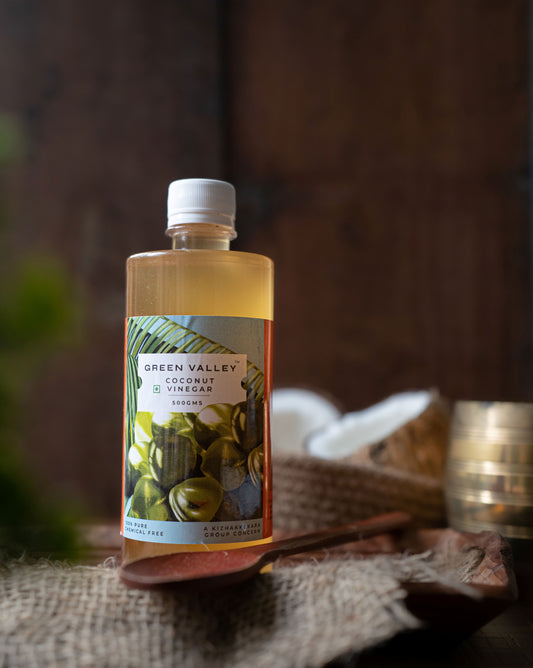Let’s be real—coconut vinegar might not have the spotlight like its popular siblings (looking at you, apple cider and balsamic), but it has quietly charmed its way into culinary hearts around the world. If you’ve been contemplating whether this tropical vinegar is a good match for your next culinary masterpiece, you’re in the right place. Here’s everything you need to know about cooking with coconut vinegar—and why it deserves a permanent spot in your pantry.
What Is Coconut Vinegar?
Coconut vinegar is made from the sap of the coconut blossom (known as “toddy”) or the water of mature coconuts. While both forms are fermented naturally, sap-based coconut vinegar tends to have a milder taste compared to its water-based counterpart. Thanks to its origins, it packs a subtle sweetness and a delicate tang that makes it stand out among the vinegar crowd.
What Makes Coconut Vinegar A Great Cooking Choice?
If you’re wondering whether it’s worth giving coconut vinegar a try, here are some key benefits that’ll make your taste buds and body happy:
1. A Unique, Mild Flavour Profile
Coconut vinegar has a milder and more delicate flavour compared to harsher vinegars like white or apple cider vinegar. It brings a pleasant acidity to dishes without overpowering them, making it a versatile choice for cooking. Its slightly sweet, tropical undertones add depth and balance, particularly in Asian, Caribbean, and Southeast Asian recipes.
2. Packed With Nutrients
Unlike heavily processed vinegars, coconut vinegar retains its nutrients, including vitamins, minerals (like potassium, iron, zinc, and magnesium), and amino acids. So, not only does it enhance flavour, but it also adds a nutritional punch to your food.
3. Low Glycemic Index
Coconut vinegar has a low glycemic index, meaning it doesn’t spike blood sugar levels when consumed. This is great news for those watching their blood sugar levels, especially when using it as a replacement for other high-sugar or high-carb condiments.
4. Rich In Probiotics
Thanks to the natural fermentation process, coconut vinegar contains probiotics—friendly bacteria that are great for gut health. While some of these probiotics may be destroyed during high-heat cooking, using it in dressings, dips, or marinades still retains these beneficial microorganisms.
Cooking Applications Of Coconut Vinegar
So, how exactly can you use coconut vinegar in your cooking? Here are some delicious ways to incorporate it:
1. Salad Dressings
Coconut vinegar makes a fabulous base for salad dressings. Mix it with olive oil, a touch of honey, mustard, and your favorite herbs for a light and refreshing vinaigrette. Its mellow flavour complements greens, vegetables, and fruit-based salads.
2. Marinades For Meat, Fish, And Tofu
The acidity in coconut vinegar helps tenderize proteins while infusing them with flavour. Combine it with garlic, ginger, soy sauce, and a dash of sesame oil for a simple yet irresistible marinade for meats, seafood, or tofu. Marinating for a few hours (or overnight) lets the flavors meld beautifully.
3. Stir-Fries And Sauces
Add a splash of coconut vinegar to stir-fries, curries, or sauces for a subtle zing that balances sweet and savory notes. It can replace rice vinegar in Asian-inspired dishes, offering a similar tang with a touch of coconut charm.
4. Pickling
Coconut vinegar works wonderfully for pickling vegetables like cucumbers, onions, carrots, and even fruits. It lends a unique, tropical twist to your pickles and retains the crunchy texture you love. Pair it with spices for an exotic pickling blend.
5. Dips And Condiments
Add coconut vinegar to homemade sauces, dips, and condiments to elevate their taste. It can be used to create zesty salsas, chutneys, and even ketchup or barbecue sauce.
6. Soups And Stews
A dash of coconut vinegar can brighten up rich soups and stews. The acidity cuts through the heaviness, balancing flavors and adding depth. Add it at the end of cooking to preserve its freshness.
7. Baking
You can even use coconut vinegar in baking! Its acidity reacts with baking soda, creating leavening that helps baked goods rise. It’s especially useful in vegan baking where eggs aren’t used.
Benefits Of Cooking With Coconut Vinegar
1. Enhances Flavour Without Overpowering
Unlike stronger vinegars that can dominate a dish, coconut vinegar adds a balanced tang without overwhelming the other flavours. It allows the true taste of ingredients to shine through, making it suitable for even the pickiest eaters.
2. Healthier Alternative
Using coconut vinegar as a seasoning or ingredient can reduce the need for excessive salt, sugar, or fat, making it a healthier option for cooking. Plus, with its probiotic content (when used raw), you may also get a boost in gut health.
3. Suitable For Special Diets
Coconut vinegar is gluten-free, vegan, and low-carb, making it suitable for various dietary preferences. It’s an ideal choice for paleo, keto, and plant-based diets.
4. Helps Balance pH Levels
Coconut vinegar is known to have an alkalizing effect on the body despite its acidic taste. Consuming small amounts as part of a balanced diet may help maintain a healthy pH balance.
Tips For Cooking With Coconut Vinegar
- Use Sparingly: While coconut vinegar is milder, it’s still vinegar—use it in moderation to avoid overpowering your dish.
- Add at the Right Time: For hot dishes, consider adding coconut vinegar towards the end of cooking to preserve its delicate flavour.
- Experiment: Don’t be afraid to try it in different recipes! It can replace most vinegars in a pinch, but each dish offers a new opportunity to see how it blends with flavours.
If you have a taste for tanginess and like your dishes a bit odd, different, and refreshing, Coconut Vinegar is the way to go. Coconut vinegar is not only suitable for cooking—it shines in a variety of dishes. Whether you’re looking to elevate the flavour of your meals, add a touch of tropical flair, or simply enjoy its health benefits, coconut vinegar deserves a spot in your kitchen repertoire. So, the next time you’re in the mood to experiment, reach for that bottle of coconut vinegar and let it work its magic. Your taste buds (and maybe even your gut) will thank you.


